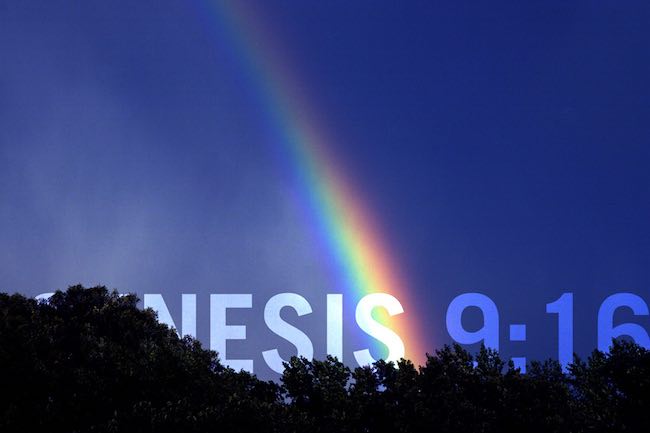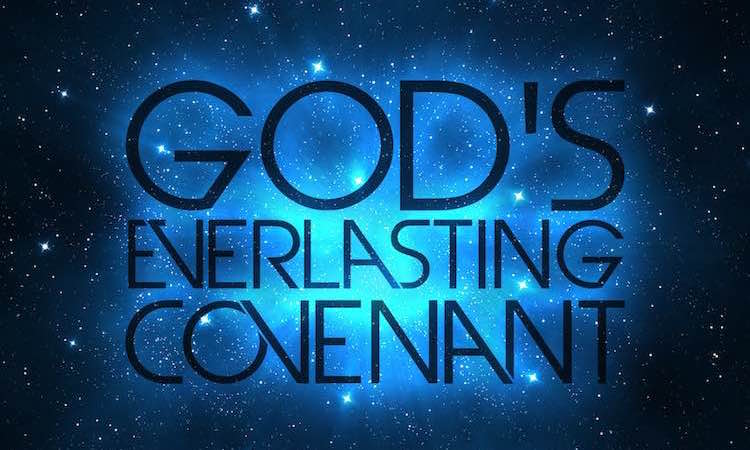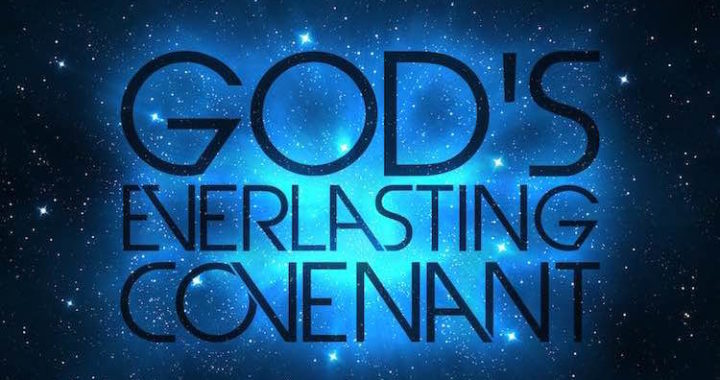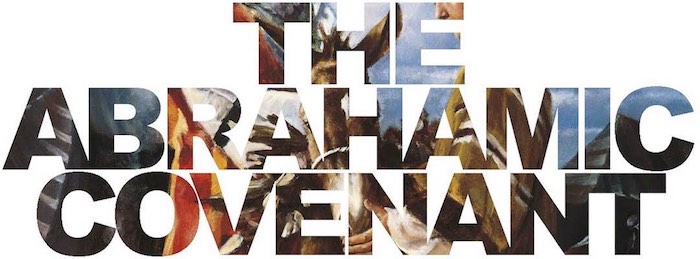With the nations of the world constantly spinning out of control, many wonder if we are nearing the end of days. When Yeshua was on this earth He spoke the following words regarding His coming and the end of days:
For the coming of the Son of Man will be just like the days of Noah. For as in those days before the flood they were eating and drinking, marrying and giving in marriage, until the day that Noah entered the ark, and they did not understand until the flood came and took them all away; so will the coming of the Son of Man be. – Matt. 24:37-39
Yeshua stated that the end of days and His coming would be similar to the “days of Noah” when life was going on as normal.
Noah and his family were saved out of the judgement of those days because of their faith in God and obedience to His Word. What else can we learn from “the days of Noah” that can prepare us for the end of days and the coming judgment on this earth?
Watch this video for a brief overview of this week’s commentary
Noach – נוח – Noah
This week’s Torah Portion is called “נוח” – “No’ach,” or as we say in English, “Noah.” The story of Noah and his family is detailed for us throughout the chapters of this week’s reading with a special focus on the man Noah:
These are the records of the generations of Noah. Noah was a righteous man, blameless in his time; Noah walked with God. Noah became the father of three sons: Shem, Ham, and Japheth. – Gen. 6:9-10
Noah was a good man, a family man; married with three sons. More than this, Noah is presented to us as a righteous man at a time when the world was completely wicked (Gen. 6:11-12).
As a result of the wickedness of mankind in Noah’s day, God had decided to hit the reset button for His creation:
Then God said to Noah, “The end of all flesh has come before Me; for the earth is filled with violence because of them; and behold, I am about to destroy them with the earth. – Gen. 6:13
God had determined to destroy the whole earth and every living thing on the earth except Noah, his family, and all of the creatures that would join them on the ark.
The story of Noah’s Ark and the flood is well known to all of us. God destroyed every living thing on the face of the earth by a great flood (Gen. 7). Noah and his family, along with every kind of animal, bird, reptile, and so forth, were saved through their obedience, by entering the ark which Noah had made. A full year would pass before God commanded Noah and the others to come out of the ark (Gen. 8:13-19).
The Noahic Covenant
After Noah, his family, and every living thing came out of the ark when the water had receded from the earth, Noah then built an altar and offered up sacrifices to God. The LORD received Noah’s offerings in a positive manner:
The LORD smelled the soothing aroma; and the LORD said to Himself, “I will never again curse the ground on account of man, for the intent of man’s heart is evil from his youth; and I will never again destroy every living thing, as I have done. While the earth remains seedtime and harvest, and cold and heat, and summer and winter, and day and night shall not cease.” – Gen. 8:21-22
The LORD had determined that He would never again destroy every living thing as He did by sending the flood on the earth.

The Bow in the Sky
The LORD made a covenant with Noah and his sons confirming that He would never again destroy all flesh with a flood and then gave them a sign of this covenant:
God said, “This is the sign of the covenant which I am making between Me and you and every living creature that is with you, for all successive generations; I set My bow in the cloud, and it shall be for a sign of a covenant between Me and the earth. It shall come about, when I bring a cloud over the earth, that the bow will be seen in the cloud, and I will remember My covenant, which is between Me and you and every living creature of all flesh; and never again shall the water become a flood to destroy all flesh. When the bow is in the cloud, then I will look upon it, to remember the everlasting covenant between God and every living creature of all flesh that is on the earth.” – Gen. 9:12-16
The rainbow in the sky would be a continual sign of God’s promise to never again destroy all flesh on the earth by means of a flood. God not only made a promise but He also made a covenant with Noah, his sons, and every living creature for all successive generations.
This covenant which God made with all flesh after the flood is called an “everlasting covenant” or in Hebrew, “ברית עולם” – “brit olam.” The word “ברית” – “brit” simply means “covenant” while the word “עולם” – “olam” can mean “eternal, everlasting, perpetual, for ever, etc…” We generally associate this everlasting covenant with the rainbow and God’s promise to never destroy the earth or all flesh again with a flood.
Are the rainbow and God’s promise the totality of God’s everlasting covenant?
Do we have any responsibility in God’s everlasting covenant or is it one-sided?
The Everlasting Covenant
The phrase “everlasting covenant” is only used sixteen times in all of the Old Testament. In reading through these sixteen references of the everlasting covenant, I have discovered that the overwhelming majority of the times that this phrase appears is in connection to the promises of God through Abraham to the people and land of Israel (Gen. 17:7,13,19. 2 Sam. 23:5. Is. 55:3, 61:8. Jer. 32:40, 50:5. Ezek. 16:60, 37:26. Ps. 105:10. 1 Chron. 16:17). There are also two times where this phrase is used to speak of the sabbath as an everlasting covenant between God and the people of Israel (Ex. 31:16. Lev. 24:8).
The first appearance of the phrase “everlasting covenant” is in Genesis 9:16 in reference to the covenant that God made with Noah and all flesh. The other fourteen references that I listed above all relate to the everlasting covenant that God made with His chosen people from Abraham to King David. There is still one remaining reference, number sixteen, that we will read towards the end of this study.

The Abrahamic Covenant
The LORD first spoke to Abraham about the everlasting covenant when Abraham was 99 years old. The LORD had come to Abraham to remind him of the promises that He had already made to him: to make him a father of many nations and to give the land of Canaan to his seed as an inheritance (Gen. 17:1-8).
The LORD also told Abraham that He would bless Sarah his wife and give him a son by her. Abraham struggled to believe God and the following conversation is recorded:
And Abraham said to God, “Oh that Ishmael might live before You!” But God said, “No, but Sarah your wife will bear you a son, and you shall call his name Isaac; and I will establish My covenant with him for an everlasting covenant for his descendants after him. – Gen. 17:18-19
The everlasting covenant that God made with Abraham regarding the people and land of Israel was dependent on the promised son, Isaac.
The ultimate blessing of the everlasting covenant that God made with Abraham is that all of the families of the earth would be blessed through his seed (Gen. 12:3,7). Isaac was the initial fulfillment of this promise but the promise would continue through Jacob, the nation of Israel, and specifically through King David:
Incline your ear and come to Me. Listen, that you may live; and I will make an everlasting covenant with you, according to the faithful mercies shown to David. – Isaiah 55:3
The everlasting covenant that God made with Abraham would also be based on the promises made to King David (2 Sam. 23:5. Ezek. 37:24-28).
The Covenant & Forgiveness of Sins
In the book of Ezekiel we read more about this everlasting covenant that God would make with the descendants of Abraham:
“Nevertheless, I will remember My covenant with you in the days of your youth, and I will establish an everlasting covenant with you…Thus I will establish My covenant with you, and you shall know that I am the LORD, so that you may remember and be ashamed and never open your mouth anymore because of your humiliation, when I have forgiven you for all that you have done,” the LORD GOD declares. – Ezek. 16:60,63
We learn in these verses that the everlasting covenant that the LORD would establish with His people would include the complete forgiveness of sin.

We read about this same promise regarding the forgiveness of the sin of the people in connection to the covenant that the LORD would establish with Israel through the prophet Jeremiah:
“Behold, days are coming,” declares the LORD, “when I will make a new covenant with the house of Israel and with the house of Judah, not like the covenant which I made with their fathers in the day I took them by the hand to bring them out of the land of Egypt, My covenant which they broke, although I was a husband to them,” declares the LORD. “But this is the covenant which I will make with the house of Israel after those days,” declares the LORD, “I will put My law within them and on their heart I will write it; and I will be their God, and they shall be My people. They will not teach again, each man his neighbor and each man his brother, saying, ‘Know the LORD,’ for they will all know Me, from the least of them to the greatest of them,” declares the LORD, “for I will forgive their iniquity, and their sin I will remember no more.” – Jer. 31:31-34
Even though these verses do not specifically speak of the “everlasting covenant,” it seems obvious from the context that the new covenant detailed in these verses is the fulfillment of God’s everlasting covenant with Abraham and David with specific detail given regarding complete forgiveness of iniquity and wiping away of all memory of sin.
Fulfillment in the New Covenant
There is no fulfillment in the Old Testament of the everlasting covenant including the complete forgiveness of sins as specified in the verses above. We only see the fulfillment of this everlasting covenant through the Messiah, the son of David, the son of Abraham (Matt. 1:1) in the New Testament.
When Yeshua instituted the New Covenant at the Passover, He spoke these words:
And when He had taken a cup and given thanks, He gave it to them, saying, “Drink from it, all of you; for this is My blood of the covenant, which is poured out for many for forgiveness of sins…” – Matt. 26:27-28
Through this one statement, Yeshua described how He would usher in the ultimate fulfillment of the everlasting covenant uniting the people to God Himself through the complete forgiveness of sins.
Is there any connection between the everlasting covenant that God made with Noah and the everlasting covenant that God made with Abraham?
Noah and Abraham
The everlasting covenant that God made with Noah after the flood was not only with Noah but it was also with his sons and with all living flesh, including future generations (Gen. 9:8-10). It was a global covenant that God established between Himself and all flesh to never again destroy the earth by means of a universal flood.
We often think of the covenant that God made during the days of Noah as one-sided, however, I believe it was clearly two-sided. God agreed to never destroy the earth by flooding again but He also demanded that the sanctity of life be upheld by both man and beast:
Surely I will require your lifeblood; from every beast I will require it. And from every man, from every man’s brother I will require the life of man. Whoever sheds man’s blood, by man his blood shall be shed, for in the image of God He made man. As for you, be fruitful and multiply; populate the earth abundantly and multiply in it. – Gen. 9:5-7
This everlasting covenant demanded a response from all living flesh on the earth, both man and beast. God wanted His creation to be active in procreating and sustaining life and to abstain from taking the innocent life of human beings.
There would be a cost to breaking this everlasting covenant that God made with all flesh. We read about this price to be paid for breaking the everlasting covenant in the final reference of the sixteen verses which mention the everlasting covenant.
Breaking the Everlasting Covenant
In the book of Isaiah we read about the judgement that will come upon the earth in the latter days:
The earth will be completely laid waste and completely despoiled, for the LORD has spoken this word. The earth mourns and withers, the world fades and withers, the exalted of the people of the earth fade away. The earth is also polluted by its inhabitants, for they transgressed laws, violated statutes, broke the everlasting covenant. Therefore, a curse devours the earth, and those who live in it are held guilty. Therefore, the inhabitants of the earth are burned, and few men are left. – Isaiah 24:3-6
The earth as a whole will be judged at the end of days. At that time, all flesh will pay the price for breaking God’s everlasting covenant when God will judge the earth and its people with fire. This text makes it clear that there will also be those who survive that judgement.
The covenant that God made with all flesh during the days of Noah was a general covenant (Gen. 9:16) that will eventually end in judgment (Is. 24:5). God also made a specific everlasting covenant with Abraham which would be a blessing to the world. The everlasting covenant with Abraham continued through Isaac and his seed (Gen. 17:7,19). King David played a part in the line of that seed until the Messiah came, who was the ultimate fulfillment of the everlasting covenant.

God’s Covenant with Us
Humanity and all flesh is guilty of breaking the everlasting covenant (Is. 24:5) by the shedding of innocent blood (Gen. 9:5-6). In the everlasting covenant with Noah, God demanded the payment of innocent life by the life of a man. In the everlasting covenant of God with Abraham, God fulfilled the payment of the guilty life by means of the innocent life, Yeshua the Messiah:
Now the God of peace, who brought up from the dead the great Shepherd of the sheep through the blood of the eternal covenant, even Yeshua our Lord, equip you in every good thing to do His will, working in us that which is pleasing in His sight, through Yeshua Messiah, to whom be the glory forever and ever. Amen. – Heb. 13:20
Both the Noahic covenant and the Abrahamic covenant require the payment of blood, however, it is only through the Abrahamic covenant that God provides the payment for us.
The Noahic covenant reminds us that all flesh is responsible to God. We can’t choose whether or not to be under the Noahic covenant. Our existence demands that we acknowledge the Creator God and honor the sanctity of life. God will one day judge all flesh by His holy standard as with fire.
The Abrahamic covenant reminds us that God has provided a means for the complete forgiveness of iniquity. We have the opportunity to choose life through faith in the promised Seed of Abraham, who died and rose agin and thereby established the everlasting covenant through His blood. Choose life!
Shabbat Shalom!
If you enjoyed reading this article, share it today with friends! We also invite you to sign up for our weekly Torah Portion commentary on the sidebar to the right.
Help keep our weekly commentaries free and available to all. Click here to donate today:
Torah Portion: Gen. 6:9 – Gen. 11:32
Haftara: Isaiah 54:1 – Isaiah 55:5
Return to Torah Portion Homepage
Copyright Jewels of Judaism. All rights reserved 2016



